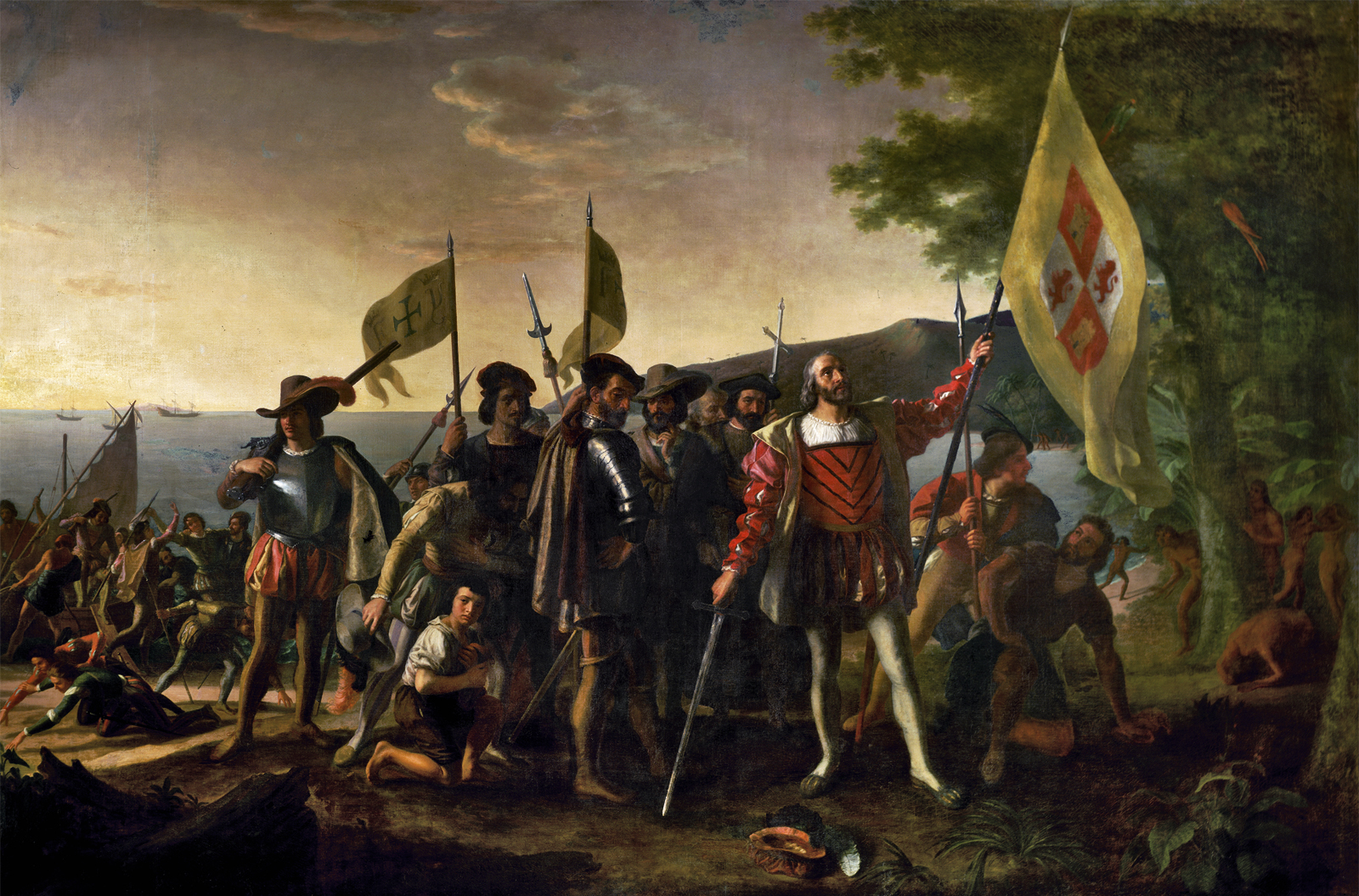In the early modern period explorers representing western European nations crossed vast oceans to discover other civilizations. With superior material and technological strength, especially firearms, Europeans were able to win empires. The motives for European expansion varied from desire to serve God, to glory, gold, and strategic need.
Prince Henry directed early Portuguese exploration in order to promote commerce, national power, and Christianity. In 1488 Bartholomeu Dias rounded the Cape of Good Hope, and by 1497 Vasco da Gama had reached India by sea. Soon afterward, Portugal acquired a dominant position in trade with the East.
Europeans were generally contemptuous of Eastern civilization. Taking advantage of military and political disunity in India, western Europeans were able to dominate the subcontinent with relatively few people. In India, Europeans found an entrenched caste system. Further east, in China, they found an ancient civilization that had weathered many changes. The Chinese emperor, with the aid of a bureaucracy run by mandarins, ruled a huge empire that was firmly built on communal villages.
Portugal established its trading empire on mercantilist principles that held that the mother country should supply manufactured goods in exchange for raw materials from its colony. Other nations were excluded from the trading monopoly the mother country established. Despite their head start, the Portuguese were challenged in the sixteenth century by the French, Dutch, and English, and they eventually lost their dominance in the East.
In 1492 Columbus, an experienced voyager, discovered a “New World” that he claimed for Spain. Discoveries multiplied after Columbus, especially as explorers hunted for a northwest or southwest passage around the Americas.
The conquests of Cortes and Pizarro gave Spain a vast empire in the Americas. Spain established a centralized administration in its New World colonies with a viceroy representing the Crown. Indians were converted to Christianity and were protected by the New Laws of 1542. Nevertheless, millions died of European diseases and harsh treatment.
In the seventeenth century England established permanent colonies in North America, overrunning earlier Dutch and Swedish colonies. Although New England was largely settled by Calvinists and the southern colonies by Anglicans, differences among the colonies were influenced by geography and climate as well as by social and economic factors. Unlike the colonies of Spain and France, where royal governors represented centralized bureaucracies, English royal governors lacked extensive bureaucracies.
In the St. Lawrence region explored by Cartier and Champlain, the French established New France. The search for fur led to exploration of the interior of North America, but the region was not heavily settled by colonists.
Both the Spanish-held West Indies—where sugar, tobacco, fruit, and coffee crops were profitable exports— and the East Indies became battlegrounds for imperialist powers. France, England, and the Netherlands established coastal posts in Africa but did not expand inland. In China and Japan, rulers imposed restrictions on foreigners. By the mid-seventeenth century, Japan had virtually sealed itself off from the West, a self-imposed isolation that lasted until 1853.
At the same time that western European nations expanded overseas, Russia explored and conquered a vast Asian empire that stretched across Siberia to the Pacific. The age of European expansion resulted in the horrors of the slave trade, the extermination of native populations, and the undermining of social arrangements that had existed for centuries.
New products as well as knowledge of other beliefs and institutions created a new world in the West. Expansion revolutionized economies and societies in Europe. As Portugal, Spain, France, Britain, and Russia explored Africa, Asia, and the New World, they set the stage for international politics for centuries to come.

